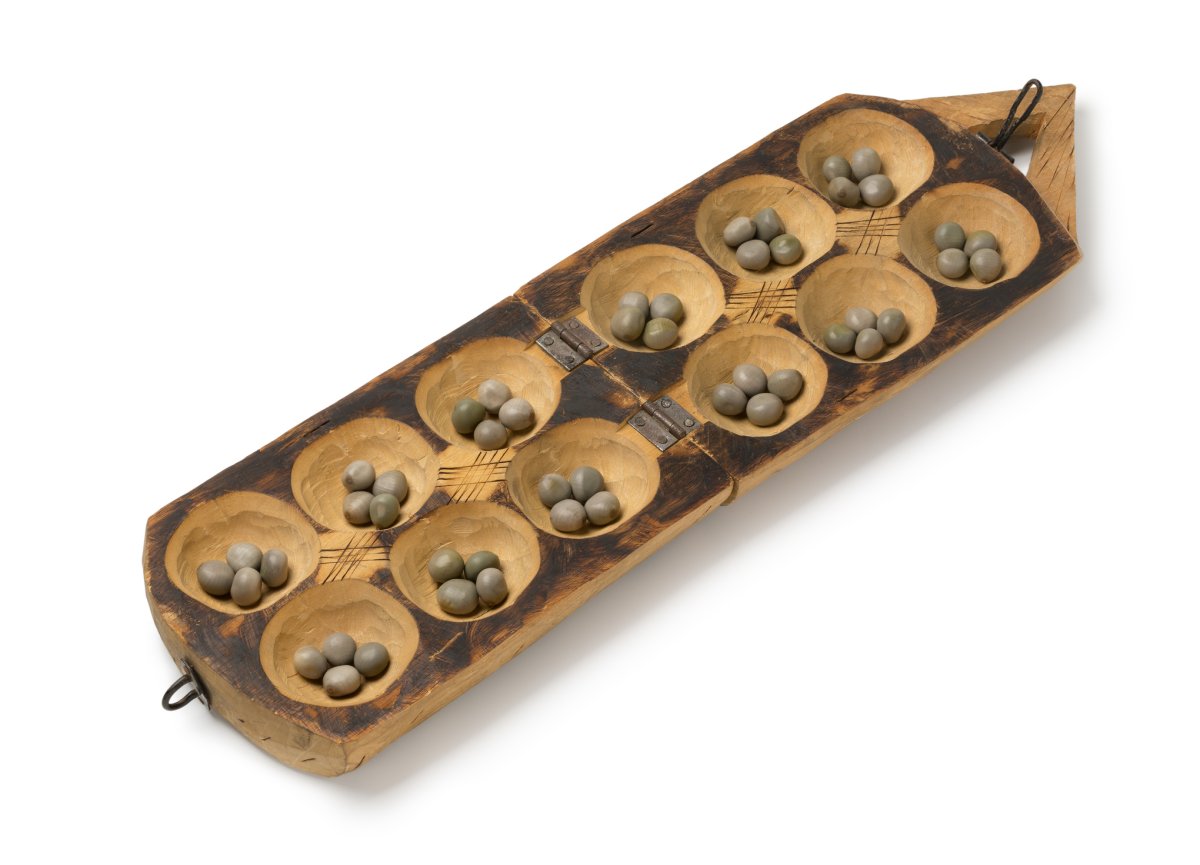An ancient “arcade” of game boards carved into rock has been discovered by an archaeologist from Yale University in Kenya.
The researcher, Veronica Waweru, noticed rows of shallow pits drilled into a rock ledge at a site along the equator in the East African nation’s central highlands.
Waweru, who is the director of undergraduate studies with the Council on African Studies at Yale’s MacMillan Center, believes the pits were used by ancient people to play a version of Mancala—a family of two-player, turn-based strategy board games that are still enjoyed across the world today.
These types of games are played with small stones, beans, seeds, marbles or another type of counter. They are placed in rows of holes on a board constructed of various materials or, alternatively, pits dug into the earth or carved into stone.
Veronica Waweru
Evidence suggests that the origins of Mancala-type games stretch back thousands of years. Examples have been uncovered at ancient Egyptians archaeological sites, as well as in other parts of Africa.
Waweru has identified about 20 Mancala-style game boards that appear to be of differing ages at the Kenyan site.
Some of the pits carved into the rock are deep enough to comfortably hold a handful of stones, whereas others have eroded so much that they are very shallow. This suggests that some of the pits are older than others, according to the archaeologist. In fact, some of the more recent examples are superimposed on earlier counterparts.
“It’s a valley full of these game boards, like an ancient arcade,” Waweru said in a press release. “Given the erosion of some of the boards, I believe people were playing these games there a very long time ago.”
Exactly how long ago the game boards were created remains something of a mystery, though. The Kenyan site lies within a private wildlife conservancy that sits in a low-lying basin surrounded by highlands. Water flows into the basin from the highlands.
“There is always a water source there,” Waweru said. “That could be a reason why very early human ancestors came there. It’s been occupied over and over again throughout time. Within the last 10,000 years, people played Mancala there.”
Dating the game boards precisely is challenging because the rock they are carved into is about 400 million years old. But the researcher said modern people in the region tend to play games like Mancala when they are out herding.
“That’s probably what they were doing here,” she said. “People tend to look at early life as brutish, nasty and short. But perhaps life was not all about survival.”

iStock
The archaeologist said herding societies were in the region by about 5,000 years ago at the earliest while also noting that rocks at the site display wear marks consistent with the sharpening of metal knives.
“If they are sharpening knives there, they are probably feasting and performing butchery and barbecuing,” she said.
The discovery of the ancient game boards came after Waweru received a tip from a local contact in Kenya, where she conducts fieldwork. She was told that tourists were removing stone hand axes from a prehistoric site in the wildlife conservancy. The tip regarding the looting at the site eventually resulted in Waweru uncovering the Mancala boards.
Do you have a tip on a science story that Newsweek should be covering? Do you have a question about archaeology? Let us know via [email protected].
Uncommon Knowledge
Newsweek is committed to challenging conventional wisdom and finding connections in the search for common ground.
Newsweek is committed to challenging conventional wisdom and finding connections in the search for common ground.


